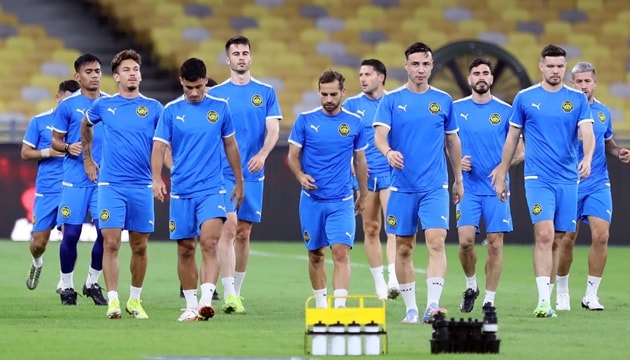Malaysia bets future on FIFA ASEAN Cup amid scandal
Part of the FIFA Days calendar, the FIFA ASEAN Cup allows Malaysia to call up its strongest squad, opening a way out between the naturalization scandal and the risk of FIFA sanctions.
Amidst the naturalization crisis and the threat of FIFA sanctions, Malaysian football has staked its future on the FIFA ASEAN Cup – a tournament included in the FIFA Days calendar, forcing clubs to release their best players to the national team. Unlike the previous AFF Cup, the “Malayan Tigers” will no longer have to play with a patchwork squad, opening up opportunities for fair competition in the region.

The twist is in FIFA Days: from scrappy lineups to the strongest force
The inclusion of the FIFA ASEAN Cup in the FIFA Days calendar was a landmark change. At that time, clubs were obliged to release players, allowing Malaysia to call up its strongest squad – something the AFF Cup had never guaranteed. This limitation caused Malaysia to participate in the AFF Cup many times with alternative plans and had difficulty reaching the highest competitive standards.
| Tournament | In the FIFA Days calendar | The club must release the player. |
|---|---|---|
| FIFA ASEAN Cup | Have | Have |
| AFF Cup | Are not | Are not |
Malaysia amid naturalization scandal and new direction
The hope comes at a time when Malaysia faces an uncertain future. The country’s football is facing an “inevitable” sanction from FIFA over its controversial naturalization scheme. In this context, the FIFA ASEAN Cup is seen as a roadmap for a reset – to re-establish the foundation of selection and rebuild the trust that has been lost.
Performance pressure and policy consequences
According to commentator Abdul Karim, regularly playing the AFF Cup with suboptimal players creates pressure for performance, indirectly pushing Malaysia to hasty and careless decisions on naturalization. When the personnel barrier is removed by FIFA Days, the team can return to a more sustainable trajectory: developing the best players at the right time and in the right environment.
Opportunity to compete fairly with Vietnam and Thailand
With the right to call up “all the best players”, Malaysia can build a team that is strong enough to conquer the regional standard – where Vietnam and Thailand are the benchmark. Instead of dealing with situational options, the coaching staff will fix the personnel structure, build the competition principles and standardize the roles according to the peak match model, which was previously limited by the force problem.
Although the date of the first tournament (expected in 2027) has not been announced, the FIFA ASEAN Cup has been considered a “historic milestone”. Not only is it a new playground, the tournament will also create conditions for Malaysia to narrow the gap in level without having to rely on risky “shortcuts”.
Policy lessons and the path to reconstruction
The key message for Malaysia is discipline in team planning. The FIFA Days schedule sets the standard: calling up the right people at the right time. This makes it more reliable to assess ability, gain international experience and measure the effectiveness of training cycles – unlike campaigns that require “patching up” personnel.
The introduction of the FIFA ASEAN Cup also represents a less risky path than the hasty naturalization policy. Instead of a short-term solution, Malaysia can rebuild based on real competition criteria, restoring its reputation in the eyes of fans and the international football community.
Things to watch for
- Official announcement of the FIFA ASEAN Cup schedule, thereby determining the optimal convocation plan.
- Developments related to FIFA's penalty on the naturalization project and its impact on the national team.
- The readiness of the “Malaya Tiger” when it has enough forces to test its strength against strong opponents in the region.


